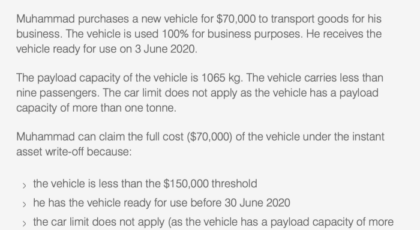Enterprise buy a car locations are crucial for businesses seeking efficient vehicle procurement. This guide delves into the strategic considerations behind these locations, examining geographical distribution, program types, online resources, third-party vendor involvement, and future trends. Understanding these factors is paramount for enterprises aiming to optimize their fleet management and minimize acquisition costs. We will explore the complexities of finding the best location to purchase vehicles for your business needs, navigating the various options and challenges involved in this significant investment.
From analyzing the density of dealerships in urban versus suburban settings to comparing the benefits of different purchasing programs (leasing, purchasing, financing), this exploration will equip businesses with the knowledge needed to make informed decisions. We'll also delve into the role of online platforms and third-party vendors, providing insights into how technology and partnerships shape the landscape of enterprise car buying.
The future of this industry is also considered, examining how emerging trends like autonomous and electric vehicles will impact location strategies and procurement processes.
Enterprise Car Buying Locations: A Comprehensive Guide

Source: carexamer.com
Navigating the world of enterprise car buying can feel like driving through a maze. This guide aims to illuminate the path, offering insights into geographic distribution, program types, online resources, third-party vendors, and future trends shaping this dynamic market.
Geographic Distribution of Enterprise Car Buying Locations
The geographic distribution of Enterprise car buying locations is heavily influenced by population density, business activity, and accessibility. Major metropolitan areas naturally attract a higher concentration of dealerships due to increased demand. The following table provides a snapshot of this distribution, though the actual numbers fluctuate.
| City | State | Number of Dealerships (Estimate) | Average Price Range (USD) |
|---|---|---|---|
| New York City | NY | 150+ | $20,000 - $50,000+ |
| Los Angeles | CA | 120+ | $25,000 - $60,000+ |
| Chicago | IL | 80+ | $18,000 - $45,000+ |
| Houston | TX | 70+ | $22,000 - $55,000+ |
Urban areas generally boast a higher density of dealerships compared to suburban counterparts. This is due to the larger pool of potential clients and the ease of access for businesses needing vehicles for their operations. However, suburban locations are becoming increasingly popular due to lower operational costs and the expansion of businesses outside city centers.
A bar chart illustrating this comparison would show two bars: one representing urban areas with a significantly taller bar indicating higher dealership density, and another shorter bar for suburban areas. The chart's axes would be clearly labeled: "Dealership Density" (vertical) and "Area Type" (horizontal). Data points would be clearly marked, showing a quantifiable difference highlighting the higher concentration in urban centers.
Factors like population density, proximity to major transportation routes, and the presence of supporting businesses (repair shops, parts suppliers) significantly impact dealership location decisions. Areas with high foot traffic and easy access for commercial vehicles are particularly attractive.
Types of Enterprise Car Buying Programs & Locations
Enterprise offers various programs catering to diverse enterprise needs. These programs differ in terms of ownership, cost structure, and accessibility.
- Leasing: A short-term rental agreement, ideal for businesses with fluctuating vehicle needs. Typically involves monthly payments and does not transfer ownership.
- Purchasing: A direct purchase of vehicles, granting full ownership to the enterprise. This option offers greater flexibility but requires a larger upfront investment.
- Financing: Securing a loan to purchase vehicles, spreading the cost over a longer period. This option provides financial flexibility but incurs interest charges.
Access to these programs is available through various channels: online portals, physical dealerships, and dedicated account managers. Online portals offer convenience and 24/7 accessibility. Physical dealerships provide personalized service and the opportunity to inspect vehicles directly. Dedicated account managers offer tailored support and assistance throughout the buying process, particularly for large-scale purchases.
Finding the nearest Enterprise location to purchase a vehicle is straightforward; simply use their online locator. Many wonder, however, if purchasing directly from Enterprise is even an option, and the answer is yes, as detailed on this helpful resource: can you buy enterprise cars. Knowing this, you can efficiently plan your visit to the closest Enterprise buy a car location for a smooth and informed purchase.
Leasing offers greater location accessibility through online portals and potentially lower upfront costs, but lacks ownership benefits. Purchasing provides full ownership but requires a larger initial investment. Financing balances cost and ownership but involves interest payments. The choice depends on the enterprise's specific needs and financial capabilities.
Online Resources and Digital Tools for Enterprise Car Purchases
An ideal online platform for enterprise car buying should streamline the entire process, from vehicle selection to financing and delivery. A user-friendly interface is paramount.
A mockup of such a platform would feature a clean, intuitive design. The homepage would display featured vehicles, categorized by type and specifications. Users could filter results based on criteria such as make, model, year, fuel type, and price range. A dedicated section would provide details on leasing, purchasing, and financing options
Secure online payment gateways would ensure secure transactions.
Several existing platforms offer online tools for vehicle procurement, although their features and ease of use vary. Some examples include dedicated fleet management software, online auction sites specializing in commercial vehicles, and manufacturer-specific portals. These platforms typically offer features such as vehicle tracking, maintenance scheduling, and reporting capabilities.
| Feature | Description | Benefits | Potential Drawbacks |
|---|---|---|---|
| Vehicle Search & Filtering | Advanced search functionality allowing users to filter vehicles based on various criteria. | Efficient vehicle selection, saving time and effort. | Overly complex filtering options may confuse users. |
| Real-time Inventory Updates | Displays current vehicle availability across different locations. | Transparency and accurate information on vehicle stock. | Requires robust data synchronization across all locations. |
| Secure Online Payment | Integrated payment gateway for secure online transactions. | Streamlined payment process, minimizing administrative overhead. | Potential for security breaches if not implemented correctly. |
The Role of Third-Party Vendors in Enterprise Car Purchases
Various third-party vendors play crucial roles in the enterprise car buying process, influencing location choices and overall cost.
Fleet management companies handle vehicle maintenance, tracking, and disposition. Financing institutions provide loans and leasing options. Insurance providers offer comprehensive coverage for the acquired vehicles. These vendors often have established relationships with dealerships in specific locations, influencing where enterprises source their vehicles. Their services can impact the overall cost by streamlining processes, negotiating better deals, and providing risk mitigation strategies.
Comparing three types of vendors: A fleet management company might offer comprehensive services including maintenance scheduling and driver tracking, increasing efficiency but at a higher cost. A financing institution might offer competitive interest rates but potentially stricter lending criteria. An insurance provider might offer specialized coverage for commercial vehicles, protecting against potential losses but at a premium cost. The choice of vendors depends on the enterprise's specific needs and risk tolerance.
Future Trends in Enterprise Car Buying Locations, Enterprise buy a car locations

Source: carfromjapan.com
The next 5-10 years will likely see significant shifts in enterprise car buying locations. The rise of electric vehicles (EVs) and autonomous vehicles (AVs) will impact location strategies. The need for charging infrastructure for EVs will influence location choices, potentially favoring areas with readily available charging stations. The deployment of AVs might reduce the need for large fleets, potentially decentralizing purchasing locations.
A potential future model might involve a hybrid approach: online platforms offering a vast selection of vehicles, complemented by strategically located hubs for vehicle servicing and maintenance. These hubs could incorporate charging stations for EVs and facilities for AV maintenance. Sustainability will play a significant role, with enterprises prioritizing vendors and locations that align with their environmental goals.
This could involve partnerships with companies focused on sustainable vehicle options and carbon-neutral logistics.
Conclusion: Enterprise Buy A Car Locations
Ultimately, the optimal enterprise buy a car location strategy involves a multifaceted approach. Businesses must carefully weigh geographical factors, program options, technological advancements, and the expertise of third-party vendors. By integrating online resources, leveraging efficient purchasing programs, and anticipating future trends, enterprises can streamline their vehicle procurement, ensuring cost-effectiveness and operational efficiency. A well-informed approach to car acquisition is vital for maintaining a competitive edge in today's dynamic business environment.
The choices made today will directly impact future operational success and financial stability.
Question Bank
What are the typical hidden costs associated with purchasing cars through Enterprise?
Hidden costs can include taxes, title fees, registration fees, and potentially dealer preparation fees. It's crucial to request a complete breakdown of all charges before finalizing any purchase.
Can I negotiate the price of a vehicle purchased through Enterprise's fleet program?
While negotiating power might be less than with individual purchases, it's still possible, especially for larger fleet orders. Focus on negotiating terms like maintenance packages or extended warranties.
What is the typical lead time for receiving a vehicle purchased through Enterprise?
Lead times vary based on vehicle availability and the complexity of the order. It's best to clarify the expected delivery timeframe with your Enterprise representative early in the process.
Does Enterprise offer any guarantees or warranties on fleet vehicles?
Warranty coverage varies depending on the vehicle make, model, and the specific purchasing program. Review the warranty details carefully before committing to a purchase.
How does Enterprise handle vehicle maintenance and repairs for fleet vehicles?
Enterprise may offer maintenance packages or partnerships with service providers. The specifics will depend on the contract terms and chosen program. Inquire about these options during the procurement process.

